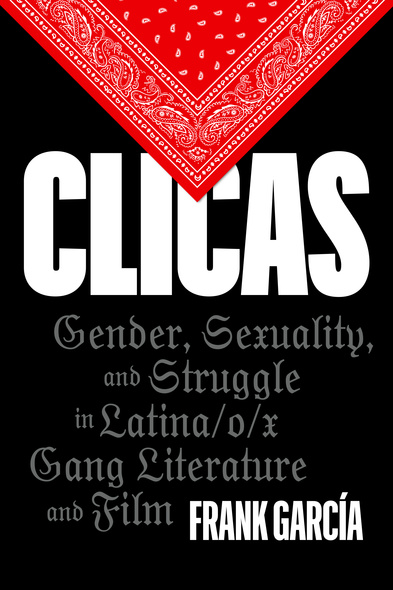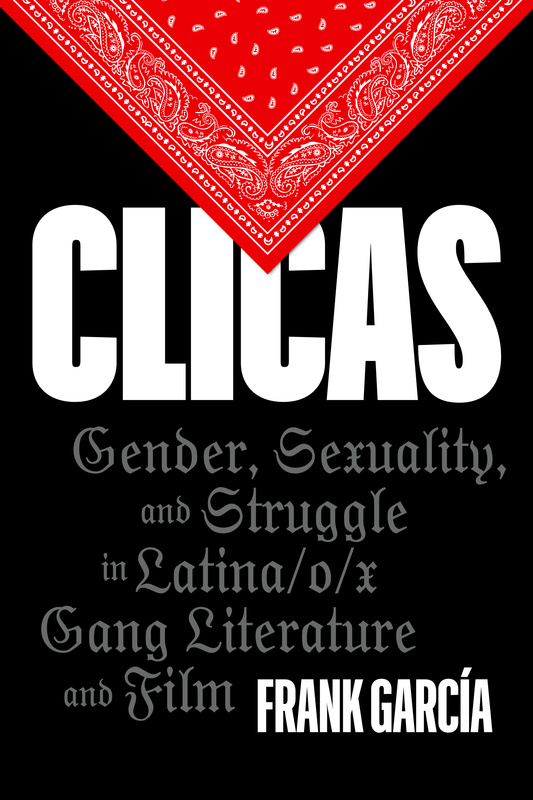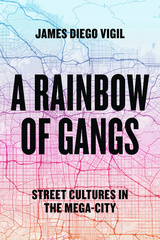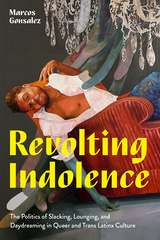
Clicas
Gender, Sexuality, and Struggle in Latina/o/x Gang Literature and Film
How Latina/o/x gang literature and film represent women and gay gang members’ challenges to gendered, sexual, racial, and class oppression.
Clicas examines Latina/o/x literature and film by and/or about gay and women gang members. Through close readings of literature and film, Frank García reimagines the typical narratives describing gang membership and culture, amplifying and complicating critical gang studies in the social sciences and humanities and looking at gangs across racial, ethnic, and national identities. Analyzing how the autobiographical poetry of Ana Castillo presents gang fashion, culture, and violence to the outside world, the effects of women performing female masculinity in the novel Locas, and gay gang members’ experiences of community in the documentary Homeboy, García complicates the dialogue regarding hypermasculine gang cultures. He shows how they are accessible not only to straight men but also to women and gay men who can appropriate them in complicated ways, which can be harming and also, at times, emancipating. Reading gang members as (de)colonial agents who contest the power relations, inequalities, oppressions, and hierarchies of the United States, Clicas considers how women and gay gang members resist materially and psychologically within a milieu shaped by the intersection of race, gender, sexuality, and class.
Frank García’s Clicas provides an excellent exploration of Latina/o/x literature and film about gay and women gang members. His close readings of literature and film are done with care and depth to provide insight into the deep vicissitudes of women and gay gang members’ material and psychological conditions. This study will have a significant and lasting impact on both humanistic and social science approaches to critical gang studies and ethnic studies more broadly.
Frank García offers an innovative decolonial analysis of representations of Latinx sexuality, gender, and class in gang literature. His book is an important contribution to Latinx studies and discussions of racialized masculinity.
Frank García is an assistant professor of English and an affiliate of the department of Africana studies and the program in American studies at Rutgers University, Newark.
- Acknowledgments
- Chapter 1: Gang Subcultures as (De)colonial Praxis
- Chapter 2: The Shared Experience of (De)colonial Gang Life
- Chapter 3: The Toxified Female Masculinities of (De)colonial Gang Girls
- Chapter 4: (De)colonial Gay Locos, Disidentifications, and Counterpublics
- Chapter 5: The Queer Utopian Futurity of Failed Gang Members
- Afterword: The Immigrant/Gang Member Binary in Latina/o/x Gang Literature and Film
- Filmography
- Notes
- References
- Index









